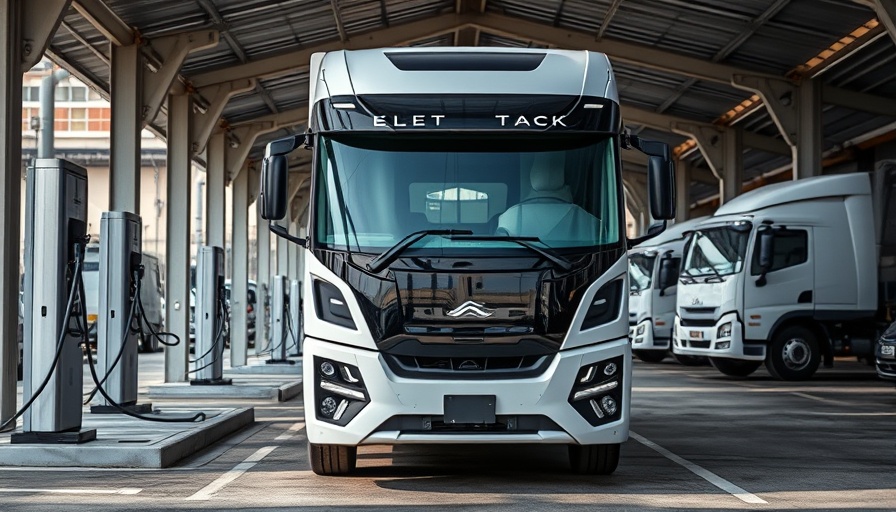
Ev Truck Revolution: How Nevoya Is Pioneering Cost Parity
In a groundbreaking development for the electric vehicle (EV) trucking industry, Los Angeles-based startup Nepova has secured a $9.3 million seed funding round to fuel its ambitions in overcoming traditional barriers to EV adoption. The company, which operates an electric truck fleet, has successfully achieved cost parity with similar-sized diesel trucks, a significant milestone that is expected to reshape the logistics sector and attract Fortune 500 clients.
Impact of Automation on Transportation Costs
Sami Khan, the founder of Nevoya, attributes their success to the integration of AI technology in optimizing trucking operations. By harnessing data analytics for route optimization, load balancing, and charging management, the company has notably reduced operational costs, enabling it to offer competitive pricing. This efficient system not only minimizes energy consumption but also alleviates labor costs, demonstrating how technological adoption can create significant value in the startup ecosystem.
Why Fortune 500 Companies Are Prioritizing EVs
As climate change concerns take center stage in corporate strategy, the push towards sustainability is influencing corporate purchasing decisions. Nevoya's services have attracted the business of ten Fortune 500 companies, highlighting a shift in priorities where sustainability is balancing with economic viability. Investing in green transportation not only aligns with corporate social responsibility but can also lead to cost savings in the long run.
Facing Challenges: The EV Industry's Future Amid Regulatory Headwinds
The road ahead may not be completely smooth, as the current administration has voiced skepticism regarding green energy, creating a challenging regulatory environment for EV startups. However, Khan remains optimistic, asserting that the demand for lower carbon emissions among major corporations is unwavering. This viewpoint emphasizes a critical opportunity for startups to innovate amid opposition, turning regulatory challenges into a platform for strategic advancements.
Lessons for Aspiring Entrepreneurs in the EV Market
For aspiring entrepreneurs looking to enter the EV space or similar industries, Nevoya's journey offers valuable insights. Understanding the intricacies of operational efficiency, leveraging technology, and fostering partnerships with established corporations are essential steps for any new business startup. The market for EV startups is burgeoning, driven by technological advancements and shifting consumer preferences, making it a promising avenue for business startup ideas.
Financing Your Startup: Lessons From Nevoya
Nevoya's recent funding round underscores the importance of strategic financing for startups. It’s crucial for entrepreneurs to explore various options, including business startup grants, loans, and investment partnerships. Building a foundational support network, including potential investors and mentors, can significantly enhance the ability to navigate initial stages and early growth, reducing startup failure rates.
Conclusion: Preparing for a Vibrant Future in Startups
As Nevoya makes strides in the EV trucking sector, it presents a compelling narrative of innovation in the face of resistance, making it a case study for future entrepreneurs. By harnessing emerging technologies, understanding market demands, and effectively managing operational costs, startups can not only contribute to environmental sustainability but thrive in competitive landscapes. For those looking to make their mark in the evolving market, now is the time to explore these business startup trends and align your vision with future innovations.
 Add Row
Add Row  Add
Add 



Write A Comment